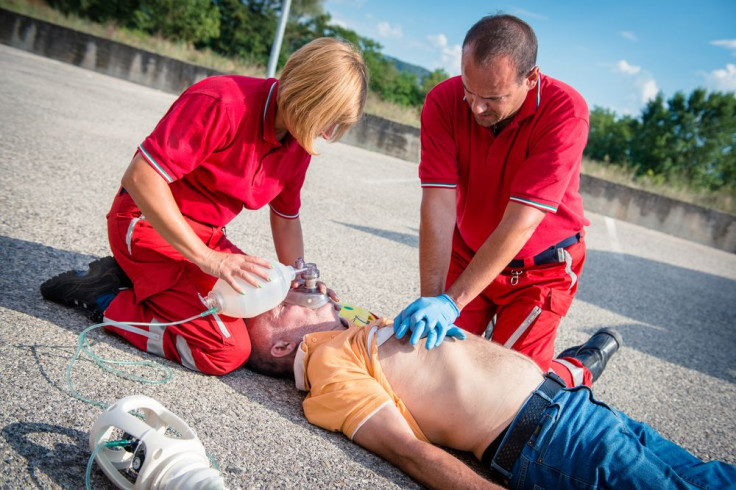CPR May Be Safely Interrupted In Cases Of Hypothermia; Resuscitation Guidelines Changing

In cases of cardiac arrest, the general rule is this: Once you begin using CPR, you must continue uninterruptedly until the patient shows signs of life… or is pronounced dead. A new study proves that in some highly specific circumstances the general rule simply does not apply. Researchers found when core body temperature is below 82.4 degrees Fahrenheit (28 degrees Celsius), CPR can be delayed or interrupted for brief intervals without jeopardizing a patient's survival or brain function.
Cardiac arrest is the term used whenever, suddenly, the heart stops beating and blood stops flowing. For some time doctors have suspected people who go into cardiac arrest while severely hypothermic — core body temperature is less than 82.4 degrees Fahrenheit — are not at the same risk of brain damage as normal body temperature patients. After all, there have been anecdotal cases of mountain climbers going into cardiac arrest and somehow surviving unharmed — surprisingly, without the least sign of brain damage — despite interruptions in CPR.
Having heard of such exceptional cases, rescue workers in the Alps and other mountainous regions have asked scientists to clarify the rules, since guidelines still say uninterrupted CPR is necessary under all circumstances.
For the current study, then, an international group of doctors from universities and hospitals searched the scientific literature to develop new guidelines around the question of when CPR may be interrupted safely. The researchers read of cases where rescuers necessarily interrupted CPR in order to transport a victim and other cases where surgeons deliberately lowered the patient’s body temperature during cardiac and vascular surgery. Analyzing all the evidence, they concluded that short interruptions in CPR do not cause damage in severely hypothermic patients.
“We have carried out comprehensive case analyses in this study,” Dr. Les Gordon of the Langdale Ambleside Mountain Rescue Team explained in a press release. “Based on the results, we propose a structured protocol that will enable rescuers and emergency doctors to interrupt CPR for defined periods of time in severely hypothermic patients so that patients can be moved.”
In practice, the hypothermic CPR recommendation would work like this: When a severely hypothermic cardiac arrest patient needs to be evacuated, rescue workers may alternate five minutes of CPR with five minutes of transportation and continue this pattern until uninterrupted resuscitation becomes possible. This five minutes on/five minutes off method would allow rescuers to transport someone to a hospital without abandoning potentially life-saving resuscitation attempts.
Low body temperature preserves the brain, the scientists explained. Later this year, their proposals may be incorporated into new guidelines issued by the International Commission for Alpine Rescue and the European Resuscitation Council.
Source: Gordon L, Paal P, Ellerton JA, et al. Delayed and intermittent CPR for severe accidental hypothermia. Resuscitation. 2015.



























